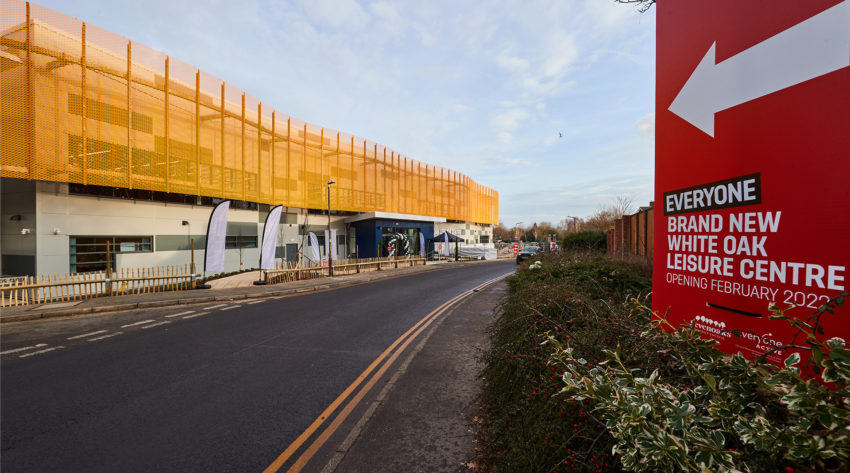According to the National Audit Office, local authorities reported £9.7 billion in Covid-19 cost pressures and income losses.[1] These losses raise questions about how central government can financially support local government in the long term.
An Insight into Local Government Funding
- In 2021 it was reported that approximately 33% of councils were at medium-high risk of fiscal failure[2]
- Central government announced £9.1 billion of support for local government in 2020/21 but this was not enough
- Since 2016 councils in England have invested £7.6 billion into commercial properties to create alternative revenue streams.[3]
With little certainty from central government on how funding will be secured in the long term, local authorities need to consider alternative long-term funding options.
Long-term Funding and Revenue at Sevenoaks District Council
In 2010 Sevenoaks District Council began developing a long-term financial strategy to become the first financially self-sufficient council in the UK. By 2016 the council succeeded in this aim and received no grant funding from central government, instead, relying on income from alternative sources. [4]

The 10-year plan moved the council away from reliance on government grants and towards income generated from commercial property. The plan fits into a longer-term 20-year strategy that rolls forward every year to meet the area’s needs. It looks towards the future of funding at Sevenoaks, building on the self-sufficiency they achieved in 2016.
Previous case studies shared on MGC here have covered insights from Cllr Peter Fleming on how Sevenoaks was able to become self-sufficient. This case study engages with how the council is looking to future investment opportunities following the Covid-19 pandemic.
Development, Regeneration, and Investment
Many councils already have alternative revenue streams and commercial assets feeding into these streams. Councils need to consider the property portfolio they have and whether buying certain properties will increase revenue. The income return from the property and the value it creates for the community must be calculated to understand the benefits the investment can provide to the council. This helps establish longer-term business models that create more financially self-sufficient governing bodies.
The Community
Investments have two primary roles for local authorities, to contribute to council revenue and to help support the wider community.
Leisure centres are not only important to the council for the income streams they provide, but also for the access they provide to exercise and wellbeing services.

The investment Sevenoaks District Council made in 2019 to regenerate existing leisure facilities in Swanley will bring in revenue from usage and update the services that were available in the old leisure centre. The newly opened centre demonstrates how reinvesting and updating services brings in more revenue from people using the facilities and supports the local authority’s net-zero targets.
By updating the leisure centre the council is hoping to increase the number of customers using the facilities, thereby providing the income the investment will provide in the long-term. The sustainable nature of the build further supports this. It demonstrates how the council and is looking to provide greener solutions for the community, it will not need to be decarbonised like many other leisure centres across the country.
Greener Economy
Going forward, environmental concerns are playing a large role in council strategies. By establishing partnerships with external organisations, councils can deliver green strategies their communities need and develop a greener economy as a whole. Partners can provide green technologies such as fast charging ports for electric vehicles in public car parks, encouraging residents in the district to switch to greener travel options as they have charging infrastructure available.
Additionally, local authorities are considering the future of their own vehicle fleet and the greener choices that can be made. Greener decisions would not only make the fleets more sustainable but also cost-efficient.
The efficiency of the in-house fleet has been further improved with the introduction of solar-powered ‘smart bins’ with built-in sensors to inform the council when they are full. This sensor reduces the number of wasted journeys for crews when bins are only half full, saving time and reducing the carbon emissions of the fleet. These smaller investments reduce council spending and greenhouse gas emissions, demonstrating how councils can make changes to benefit both the economy and the climate.
Through moving all council services in-house, Sevenoaks were able to monitor service quality and control service costs, while other councils are facing issues with rising agency costs.
Conclusions:
- Council investments should be innovative and suited to the local community.
- Setting long-term plans helps local authorities make investments that bring in future revenue.
- Making greener investments sets councils up to achieve long term net-zero targets and generates alternative income streams for the future.
Other content from Sevenoaks: How Sevenoaks District Council Overcame Funding Constraints
Register FREE to access 2 more articles
We hope you’ve enjoyed your first article on GE Insights. To access 2 more articles for free, register now to join the Government Events community.
(Use discount code CPWR50)




